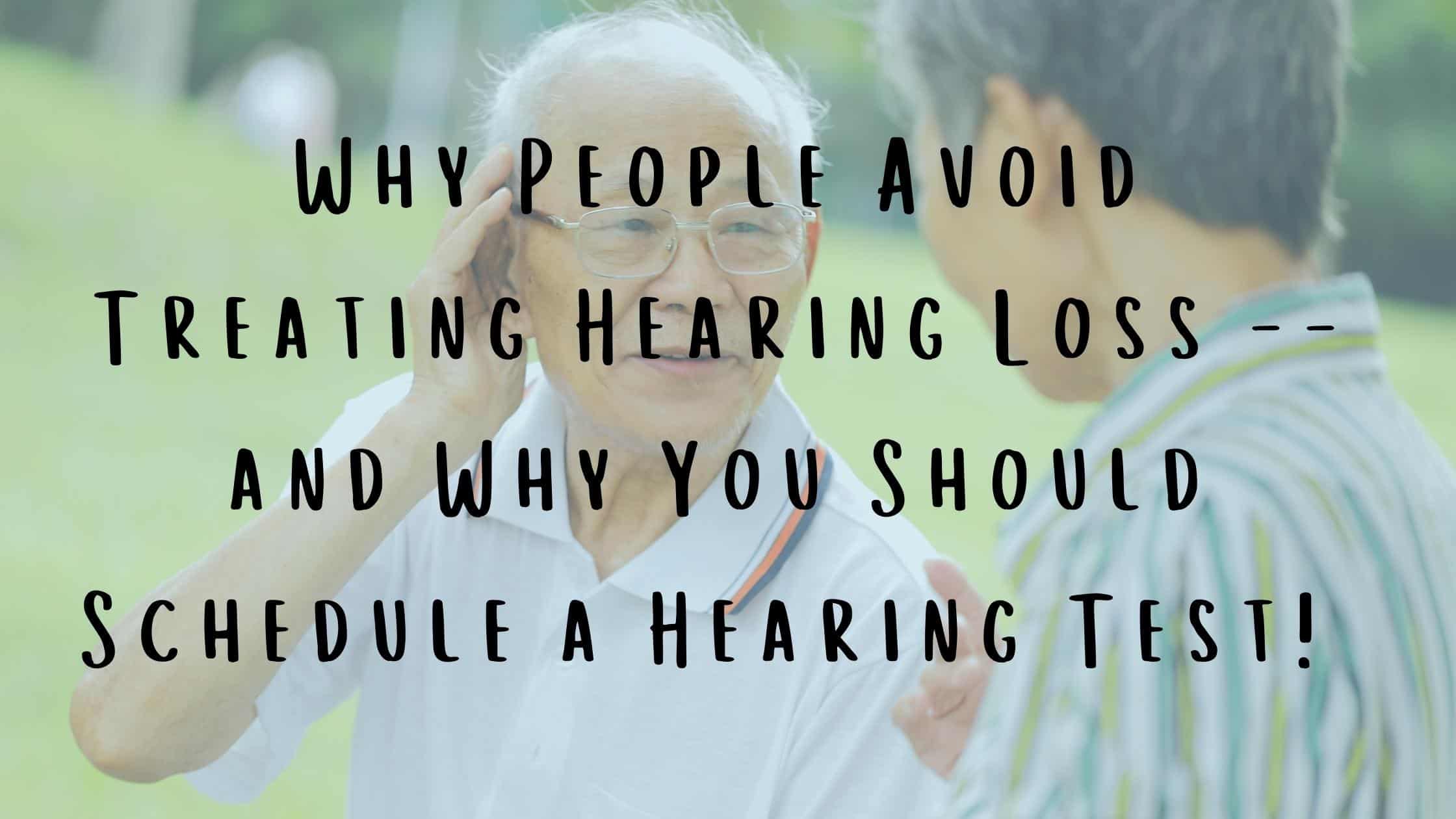
Hearing loss is quite common, and the likelihood only increases as we age. In fact, hearing loss affects one in three people ages 65 or older, and a full two out of three people aged 75 or older. With such high rates, why do so many people avoid getting treatment? Perhaps a piece of the puzzle lies in the correlation between these rates of hearing loss and age.
Some people assume that having hearing loss is tantamount to admitting that you are “getting older,” so they try to deny hearing loss as a way to avoid the appearance of aging. This reason for denying hearing loss is only one among many, and it is helpful to understand why people resist treatment, particularly if you have a loved one who might be employing some of these mental gymnastics.
Let’s take a look at some of the common reasons for avoiding hearing loss treatment, as well as what you can do to embark on the path toward better hearing health or to help your loved one do so.
The Need for Independence
Admitting hearing loss can feel for many people like an inevitable loss of independence. If others know about hearing loss or see you wearing hearing aids, they might treat you differently, even stepping in to help in ways that you don’t need. Although some people do overstep their bounds when it comes to helping people with hearing loss, the irony in this piece of mental acrobatics is that untreated hearing loss actually does inhibit independent living.
Those who have untreated hearing loss are less able to understand others in conversations, that those gaps in understanding can lead to serious problems in everyday life. In addition to communication problems, untreated hearing loss poses a risk to physical health and safety. The correlation between untreated hearing loss and cognitive decline means that for all too many people, avoiding treatment might lead to a very real loss of independence.
The Need for Respect
Some people with untreated hearing loss are more concerned that others will think less of them. Although they might not go as far as limiting their independence, we are often concerned with what others think. In order not to be underestimated or thought to be frail and feeble, some people avoid treatment for hearing loss, preferring to keep up the ruse of full hearing ability.
Again, the irony in this tightrope walk is that others might be aware of hearing loss after all. When they see that you are preserving a face of ability in spite of limitations, these people might underestimate your abilities even further. Without knowing exactly how much of conversations you are able to apprehend, they might go to lengths to get information to you in other ways, ultimately undermining your ability to thrive on your own.
The Need for Understanding
Yet another irony facing those who let their hearing loss go untreated is that they feel as if others do not understand what they need. Rather than hearing aids, they would rather preserve the façade of hearing ability, putting on a face of youth. While loved ones might understand your youthful ideals and vivacious thinking, the reality of hearing loss steps in and causes more misunderstanding. The struggle to understand one another in conversations forms a barrier and can even make relationships feel distant when they might otherwise be close.
Treating Hearing Loss
Despite the mental backflips we do to preserve a vision of ourselves as we want to be seen, reality intervenes. When hearing loss is part of your reality, these false attempts at independence, respect, and understanding actually do more harm than good. If you are in need of treatment, the time is now to schedule your hearing test.
Once we determine your abilities and needs, you can be fitted with hearing aids to make communication as clear and fluid as possible. This assistance is not an admission of aging, lack of independence, or neediness. In fact, you are likely to find that communicating with hearing aids makes you feel more able, connected, and supported than ever before!
If you’re ready to take the first step toward better hearing, contact us today.
